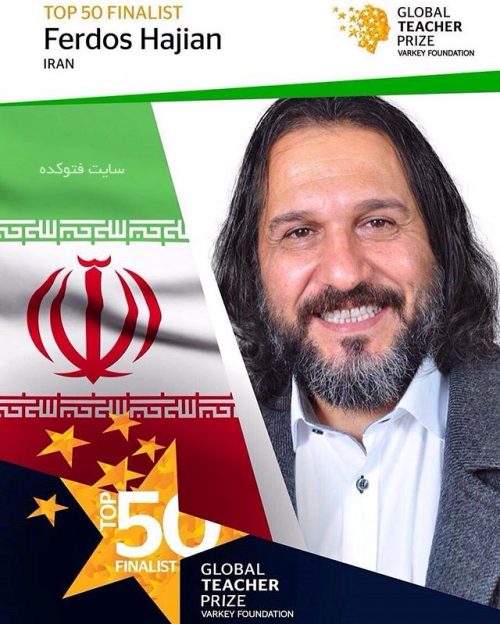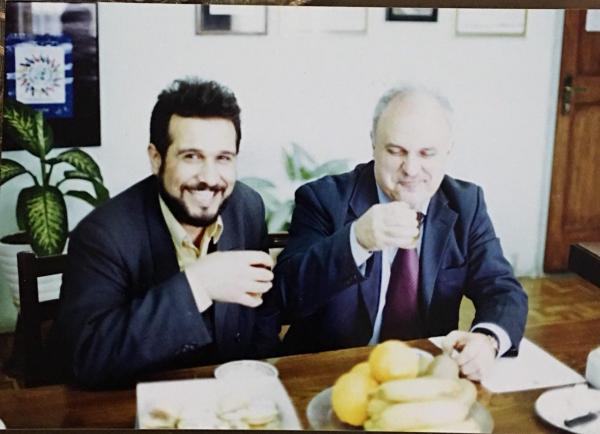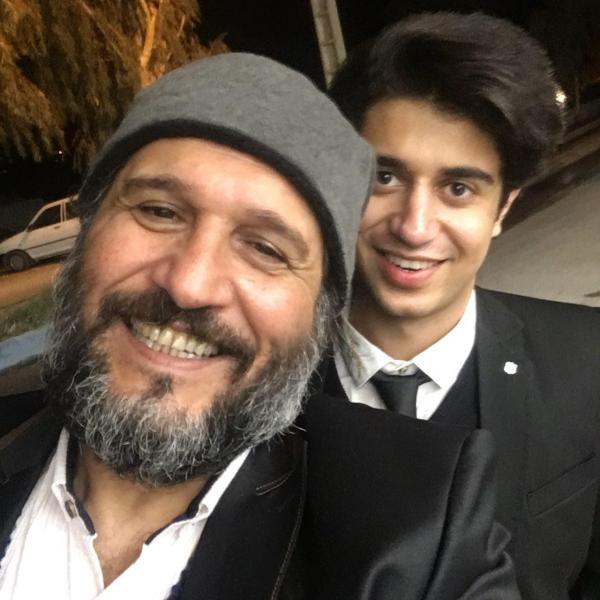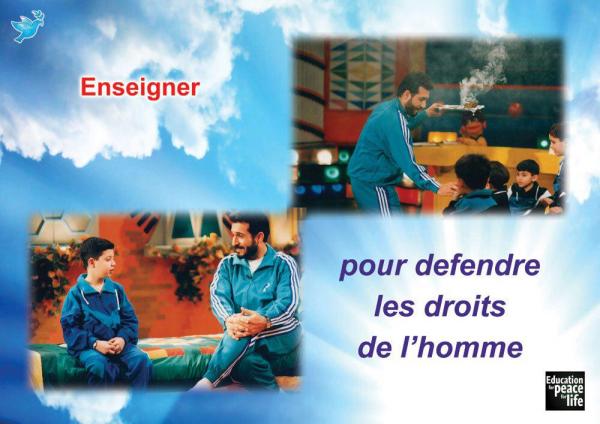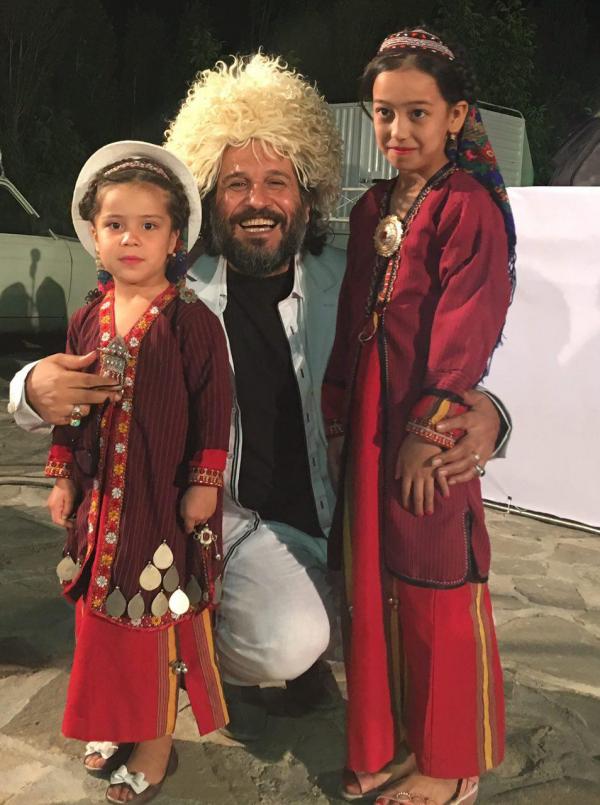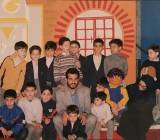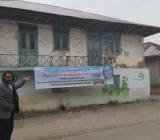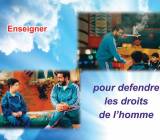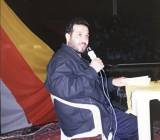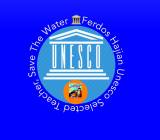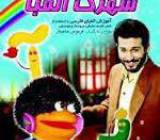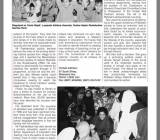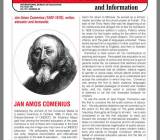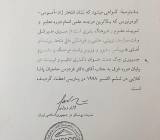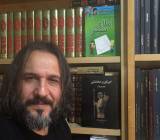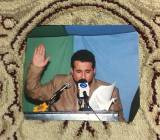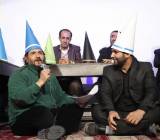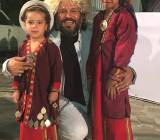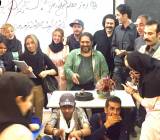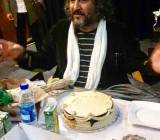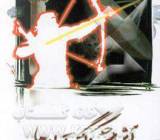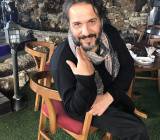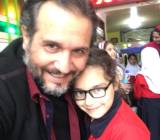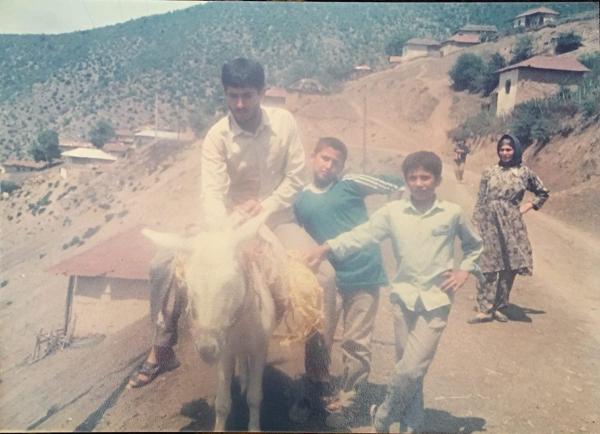
مرد جوان از مینی بوس پیاده شد. به ساعتش نگاه کرد.عقربه ها چهار و پنجاه دقیقه ی صبح را نشان می دادند.
هوا هنوز تاریک بود . لحظه ای به روبرو چشم دوخت. جاده به سختی دیده می شد . برف همه جا را سفیدپوش کرده بود . شال دور گردنش را کمی بالا آورد تا دهان و بینی اش را بپوشاند ، بند پوتین هایش را محکم تر بست، یا علی گفت و به راه افتاد. اگر شانس با او یار بود، تنها اتومبیل روستا از انجا می گذشت و او را هم به مدرسه می رساند ، در غیر این صورت باید تمام راه را پیاده طی می کرد .
آن روز شنبه و یکی از سردترین روزهای زمستان سال 1363 بود . بیست و یک سال بیش تر نداشت . اوّلین سال استخدامش پس از فارغ التحصیل شدن از تربیت معلم در آموزش و پرورش سوادکوه بود . محل کارش مدرسه ی روستای پالند تعیین شده بود.پالند یکی از دورترین مناطق ییلاقی خوش آب و هواست که تابستان های خنک و زمستان های سخت و استخوان سوز دارد .
او هر هفته بعد از ظهرجمعه از قائم شهر به زیراب می رفت ، گاهی اوقات با سرویس کارگران ذغال سنگ خودش را به دو راهی لَله بند می رساند و از آنجا حدود چهار ساعت پیاده راه می رفت تا به پالند برسد .
فقط پنج شنبه را در قائم شهر می گذراند . روز قبل که عازم روستا بود متوجه شد در جاده تصادفی رخ داده است . اتومبیلی به رودخانه ی ته دره سقوط کرد ه بود . معلم روستا برای کمک به زخمی ها به داخل رود خانه رفت . پیر زنی را از آب بیرون آورد و نجات داد . لباسهایش خیس شد ، هوا هم دیگر تاریک شده بود . تصمیم گرفت آن شب را درخانه ی یکی از شاگردان تئاترش در شهر پل سفید بگذراند و شنبه صبح زود به پالند برود.
به پشت سرش نگاه کرد. در آن جاده تنهای تنها بود. با خودش گفت:"هنوزدو ساعت و نیم برای رسیدن به مدرسه فرصت دارم". چهره تک تک دانش آموزان را به خاطر آورد.دبستان پالند فقط چهارده دانش آموز از پایه ی اول تا چهارم داشت.
مرد جوان مدیر آموزگار هر چهار پایه بود که در یک کلاس جمع بودند . او بچه های روستا را از جانش بیشتر دوست داشت و برای پیشرفت آن ها خیلی تلاش می کرد . آنان را به طبیعت می برد وهمراه آموزش مطالب کتاب های درسی، به آن ها درس زندگی می داد .
مردایستاد تا نفسی تازه کند. دوباره به ساعتش نگاه کرد . ساعت یازده صبح بود.برف به شّدت می بارید . کولاک هم شروع شده بود . زنگ اول و دوم را از دست داده بود . به یاد شاگردانش افتاد، حسین رضا، عالیه ، مهدی ، ارسلان ، فرشته .... روزهای خوبی را کنار هم گذرانده بودند . او با مواد غذایی که مادرش برای یک هفته آماده می کرد ، غذا درست می کرد . هر روز ناهارش را با بچّه ها شریک می شد . گاهی با سبزی های کوهی ، روی بخاری هیزمی سبزی پلو درست می کرد، گاهی هم آبگوشت می پخت، بچه ها نان محلی
می آوردند و غذا را کنار معلّم مهربانشان می خوردند. آن سال ، دانش آموزان در محیطی شاد و خلّاقانه، مطالب درسی را می آموختند و معلّم جوان هم در روستای کوهستانی و زیبا ی پالند، فرصت های زیادی برای کسب تجربه داشت.
بارش برف شدید تر شده بود.صدای زوزه ی گرگ ها از دور به گوش می رسید. مرد به وحشت افتاد، ایستاد و به اطراف نگاه کرد. هیچ جا به نظرش آشنا نبود . فهمید راه را گم کرده است. جای پاهایش را برف پر کرده بود. دیگر نمی توانست راه برگشت را هم پیدا کند. با خودش گفت:" اگر اینجا از سرما یخ بزنم یا طعمه ی گرگ ها شوم، آیا کسی از سرنوشتم با خبر خواهد شد؟"می دانست بچّه ها با نگرانی منتظرش هستند. صدای زوزه ی گرگ ها نزدیک تر شد. نمی دانست به کدام طرف برود. ناگهان رودخانه ی یخ زده را دید. تصمیم گرفت در مسیر آن به پیش رود تا شاید به روستای دیگری برسد. دقایق پایانی روز بود. شب سرد و برفی کم کم چادر سیاهش را روی کوهستان می کشید. مرد به سرعت قدمهایش افزود. خستگی، گرسنگی و سرما او را از پا انداخت. دست و پایش یخ زده بود. دیگر توان را ه رفتن نداشت. کنار رودخانه روی زمین پوشیده از برف افتاد و از حال رفت .
وقتی چشم هایش را باز کرد ، خودش را درون اتاقی کنار بخاری هیزمی دید . اتفاقات آن روز را به خاطر آورد . دست و پایش هنوز بی حس بود. از طرف دیگراتاق، مرد میانسالی با یک فنجان چای گرم و کاسه ای آش مخصوص ییلاق به سمتش آمد. او فرج اله خلیلی، ساکن پالند رودبار ( پایین روستای پالند ) بود. آن شب با سگ شکاریش بدن نیمه جان معلّ م روستا را پیدا کرد. او را بر شانه هایش گذاشت و به خانه اش برد.
فرج اله در حالی که دستهای معلّم را در آب گرم ماساژ می داد ،گفت:" اگر کمی دیرتر پیدایت می کردم ممکن بود دست و پا یا حتی جانت را از دست بدهی. خدا را شکر که مرا به موقع رساند . "
این معلّم جوان ، فردوس حاجیان بود . کسی که سال ها بعد زمانی که جنگ بر ایران سایه افکند ، به جبهه رفت و در بمباران شیمیایی به سختی مجروح شد . اما با تلاش و مقاومت سبک جدید آموزش زبان فارسی را پایه گذاری کرد . چندی بعد با شعر،ترانه، نمایش و موسیقی سنتی، برنامه تلویزیونی "شهرک الفبا" را ساخت و کتاب های متعددی تالیف کرد. این آموزگار دلسوز و پرتلاش موفق شددر مهر ماه 1377 جایزه ی بهترین معلّم را از طرف سازمان بین المللی "یونسکو"،در پاریس کسب کند . وی در سال 1395 ، در مسابقه ی بین المللی ، از میان هزاران معلم برگزیده ی دنیا ، در جمع پنجاه معلم برتر قرار گرفت و نامزد دریافت جایزه ی مشهور به نوبل معلمی شد .
به قلم عفت صفرى(همسر فردوس حاجيان) كارشناس ارشد روانشناسى_تربيتى و دبير داوطلب مدارس روستاهاى محروم مازندران_قائمشهر
From paland to paris
Written by: Efat Safari
Translated by: Akbar Batooee
The young man took a look at his watch while getting off the mini-bus; it was4:45 a.m. It was still dark, the sun had not risen yet. The man looked around; he could hardly see the road. Everywhere was covered by a blanket of snow. He pulled his shawl a little up to cover his mouth and nose, fastened his bootlace tighter, and saying “Ya Ali!” began walking. If he was lucky enough, he might come across the only vehicle of the village, which occasionally passed this part of the region, and then he could get to the school with that car; otherwise, he had to walk all the way down to the village.
It was Saturday, one of the coldest days of the year 1985. The man was about 21, and after graduation from Teacher Training Center, it was the first year of his job after being employed by Savadkooh education system. The school, where he worked, was in Paland, a small village located in one of the remotest regions of Mazandaran with cool pleasant summers and deadly cold winters.
Every Friday afternoon, he had to go from Ghaemshahr to Zeerab, sometimes with the minibus taking-coal mine workers to work. The minibus would take him to the crossing of Laleband, from where he had to walk for four hours to reach Paland.
He could stay in Ghaemshahr only on Thursdays; yesterday, when he was going to the village, noticed that there was a car crash, and a car had fallen into a river in a deep valley. The village teacher immediately went down into the river to help the injured. He took an old woman from water and saved her life. His clothes were soaked, and it was almost dark, so he decided to spend that nigh at one of his theater student’s home in Polsefid town, and leave for Paland in Saturday early morning.
Looking back, he found himself all alone. “I’ve two and a half hours to reach the school” he told himself. He remembered each of his students’ faces; there were just 14 students in Paland School in four grades.
The young man was both teacher and principal of the school simultaneously. The whole students of the four grades sat in one classroom. He loved them wholeheartedly, and tried hardly to help them develop. He took them out in the nature, and along teaching the textbooks, he taught them the lessons of life.
The man stopped to take a breath, and check his watch. It was 11:00 a.m., and it was snowing heavily. It was going to be a snowstorm soon. He had missed the first and second classes in the morning. He remembered his students: Hosseinreza, Aliyeh, Mahdi, Arsalan, Fereshteh,…. They have had good times together. His mother supplied him something he needed for a week, and he made lunch with what mother gave him and shared his food with his students. Sometimes, using mountain vegetables, he cooked Sabzipolo (rice with vegetables) on the wood-burning heater in the classroom. Some other times he cooked Abgusht (sort of consommé) and students brought homemade bread, and ate food with their kind teacher. Students learned their lessons in a creative and happy environment, and their teacher also had various opportunities to achieve experiences in the beautiful mountainous village of Paland.
It was snowing more heavily. Wolves were howling in those whereabouts; the man was frightened. The man stopped and checked the direction, yet there was no familiar items; oh my God! he was lost. The snow had covered his footprints too, and there was no way to get back. He told himself: “if I die for freezing here, or be devoured by wolves, will anyone know about my destiny?” he knew that children are waiting for him anxiously. The wolves’ howling got closer and closer. He didn’t know where to go. Suddenly, he saw the frozen river, and decided to walk along the river, hoping that it may lead to a village. It was end of the day, and the cold snowy night was gradually drawing its black cover over the mountains. The man quickened his steps, but finally fatigue, hunger and cold forced him to surrender. His hands and feet had become frozen, and he could progress no more. A few minutes later, the man had fallen motionless on the snow-covered ground.
When he opened his eyes, he found himself in a warm cozy room next to a heater. He remembered what had happened during the day. His hands and feet were still numb. From the other side of the room, a middle-aged man with a cup of hot tea and a bowl of soup approached him. He was Farajollah, one of the residents of Paland-e Rudbar (a village near Paland), who had found him half-dead, while going home with his dog, at night. He had carried the village teacher on his shoulder to his own home.
Massaging teacher’s hands, Farajollah said: “if I had found you a bit later, you might have lost your hands or feet, or even your life. Thank God that I arrived on time.”
This young teacher was Ferdos Hajian, who was badly injured by chemical bombs in battlefield, when the shadow of war fell on his country, Iran. He founded a new method for teaching Persian with his own efforts. Later on adding songs, theater and traditional music to his method, he produced a TV program called “Township of Alphabet”. He has written several books as well. This kind and hardworking teacher achieved the prize for UNESCO selected teacher in 1999 in Paris. In 2016, he was selected as one of the 50 finalists of Global Teacher Prize from thousands of candidates throughout the world.

